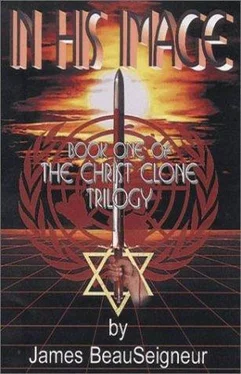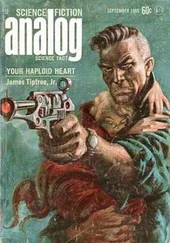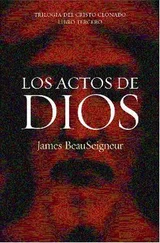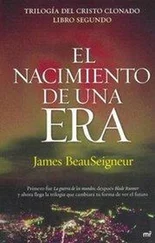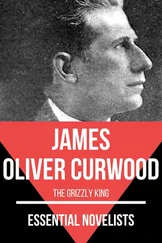"What do you mean, 'real healing power'?"
"Decker, are you blind? You saw those cells. What do you think we've been talking about?"
"I'm not sure I know anymore."
"Those cells are hundreds or even thousands of years old. They have survived through intense heat and freezing cold. As far as we can tell, they're immortal. Yet, in most respects they're human. With time we may be able to discover what makes them immortal. We may discover things that can lead to new vaccines, create powerful new life-saving drugs, extend life, perhaps even bring about our own immortality!"
Decker raised his eyebrows in surprise. "I hadn't even considered anything like that," he said.
"Actually, I'm already deeply involved in research on the cells. I began by inducing cell mitosis in the laboratory. The cells are extremely resilient and multiply rapidly. I've been able to grow a substantial culture. However, there is another area of research worthy of pursuit as well." Goodman paused to consider his words. "Decker, what do you know about cloning?"
It took Decker only an instant to guess what Goodman was getting at. Decker was not a religious person but this idea rubbed him entirely the wrong way. "Hold it! You don't mean… You're talking about cloning Jesus?!" Decker's response was quite loud and the outburst startled Maria, who dropped a plate in the kitchen.
Goodman had not anticipated Decker's opposition. "Just wait a minute!" he replied at a slightly lower and more controlled decibel. "To begin with, we can't be certain that these are the cells of Jesus… "
'Well, it sure as hell is a pretty good guess!" Decker shot back.
"But even if they are," Goodman continued, "I still find my hypothesis about his origin more reasonable than any silly religious notions you may have."
Then Decker put it all together. "That's what you were talking about before! That's how you plan to test your hypothesis, that Jesus was from an advanced alien race! You're going to try to clone him!" "Look, Decker, there's no need for a shouting match. And anyway," Goodman continued, "you're jumping to ridiculous conclusions based on insufficient data. All I meant was that you might, someday be able to test my hypothesis of the man's origin in that manner." Goodman's clarification wasn't very convincing.
"Look, Professor," Decker said, "it's one thing to do lab research or grow cells in a petri dish, but you just can't go around cloning people, especially if the guy you want to clone might just be the son of God!"
"Decker, use your brain. If the image on the Shroud was from the son of God, then tell me this: Why would an all-knowing, all-wise, all-powerful creator allow the cells to get stuck to the Shroud in the first place?"
"Who knows? Maybe as a sign or something."
"And why would he allow me, a man who doesn't even believe in him, to find the cells? If it was some kind of sign, wouldn't God at least have chosen someone who believed in him?"
Decker didn't have an answer.
"But more importantly," continued Goodman, "even if you examine it from a religious point of view, you must ask how could a mere mortal manage to clone the son of God? Would the 'soul' of Jesus be in the clone?" Goodman struggled to hide the sarcasm in his voice. "Would God really allow himself to be so easily manipulated by men?"
Decker listened. As uncomfortable as it made him feel, what Goodman was saying made sense.
"Decker, I really expected you to be more open-minded about this. Where's your scientific curiosity? Surely you can see that if I did manage to clone the man on the Shroud it would be proof positive that he was not the son of God. If, I repeat, if it was possible to clone the man, we still might never know his origin because he would not have the memory of the original. But we'd know one thing without a doubt, and it's that he was not the son of God, because if he was, I think you'll agree, it's a pretty safe assumption that 'God' wouldn't allow us to clone his son."
Decker couldn't argue with Goodman's logic. An all-knowing, all-powerful God was not likely to just leave a bunch of his son's cells lying around. Although Decker didn't argue, it was obvious that as far as Goodman was concerned, the discussion was over.
During their conversation the two men had taken only a few bites of their dinners. Goodman now focused his attention on the plate before him. Decker felt it wise to do the same. After the meal the conversation grew a little more amiable but Goodman was clearly angered and avoided the subject of the Shroud entirely, except to say that he would call Decker when the next step in his research on the cells was under way.
When they left for the airport, Maria cleared the dishes and silver, stretching across the large table to reach Professor Goodman's saucer and cup. As she carried them back to the kitchen she tugged lightly at her apron and adjusted her maternity dress.
Christopher
Twelve years later – Los Angeles, California
"Is it very much farther?" Hope Hawthorne asked her father as they drove down the exit ramp of I-605 in Northern Los Angeles. "No, Babe, just a few more miles," Decker answered.
Hope turned on the radio just in time to hear an announcer report the current temperature, "It's 78 degrees; another beautiful day in Southern California."
"Seventy-eight degrees! Is this heaven or what? It was thirty-seven and raining when we left D.C.," Decker commented as Hope tried to find some music. They had flown in that morning from Washington, D.C. to visit Professor Harry Goodman, who was about to announce a major breakthrough which could prove to be a cure for several types of cancer. The discovery was a result of research with the C-cells (as Goodman had come to call the cells from the Shroud) and, in accordance with the agreement they had made twelve years earlier, Decker was to be given an exclusive report on any C-cell research two weeks prior to any formal announcement and press conference. To this point the research had not been nearly as successful as Goodman had hoped.
Decker had seen Goodman only once since their initial discussions about the origin of the cells. The other time had been in the summer of 1996 when Goodman believed he was close to developing an AIDS vaccine. What he found was a dead end. Most humiliating was that Goodman had discovered the error in his research two days after Decker's article reached the newsstands. The article had gotten national attention for Goodman's work and Decker's newspaper, only to be followed the same week by embarrassment.
Decker turned the rented car down the narrow street and stopped in front of Goodman's house. They were greeted at the front door by Mrs. Goodman. Decker politely reintroduced himself to the woman who smiled warmly at her two guests. "Oh, I remember you," she said brightly. "And this must be Hope." She reached over to give Hope a grandmotherly hug. "Harry said you were bringing your daughter with you. Such a pretty girl!" she continued. "How old are you, dear?" she asked.
"Thirteen," Hope answered.
"We decided to mix pleasure with business," Decker said. "We're going to drive up to San Francisco this afternoon and visit my wife's sister for a few days. Elizabeth and our other daughter, Louisa, flew out there three days ago."
"Yeah, but I had to stay in Washington and take a math test," Hope interjected.
"In the news business things are very mercurial. It seems that our vacations have never worked out as we planned, so we just try to take a few days whenever we can. Sometimes that means that the kids have to miss a few days of school," Decker explained.
Mrs. Goodman looked at Decker with disapproving puzzlement on her face. "Your daughter is in school in Washington? I thought you lived in Tennessee. Do you really think that a boarding school is appropriate for a girl Hope's age? Especially so far from… "
Читать дальше
